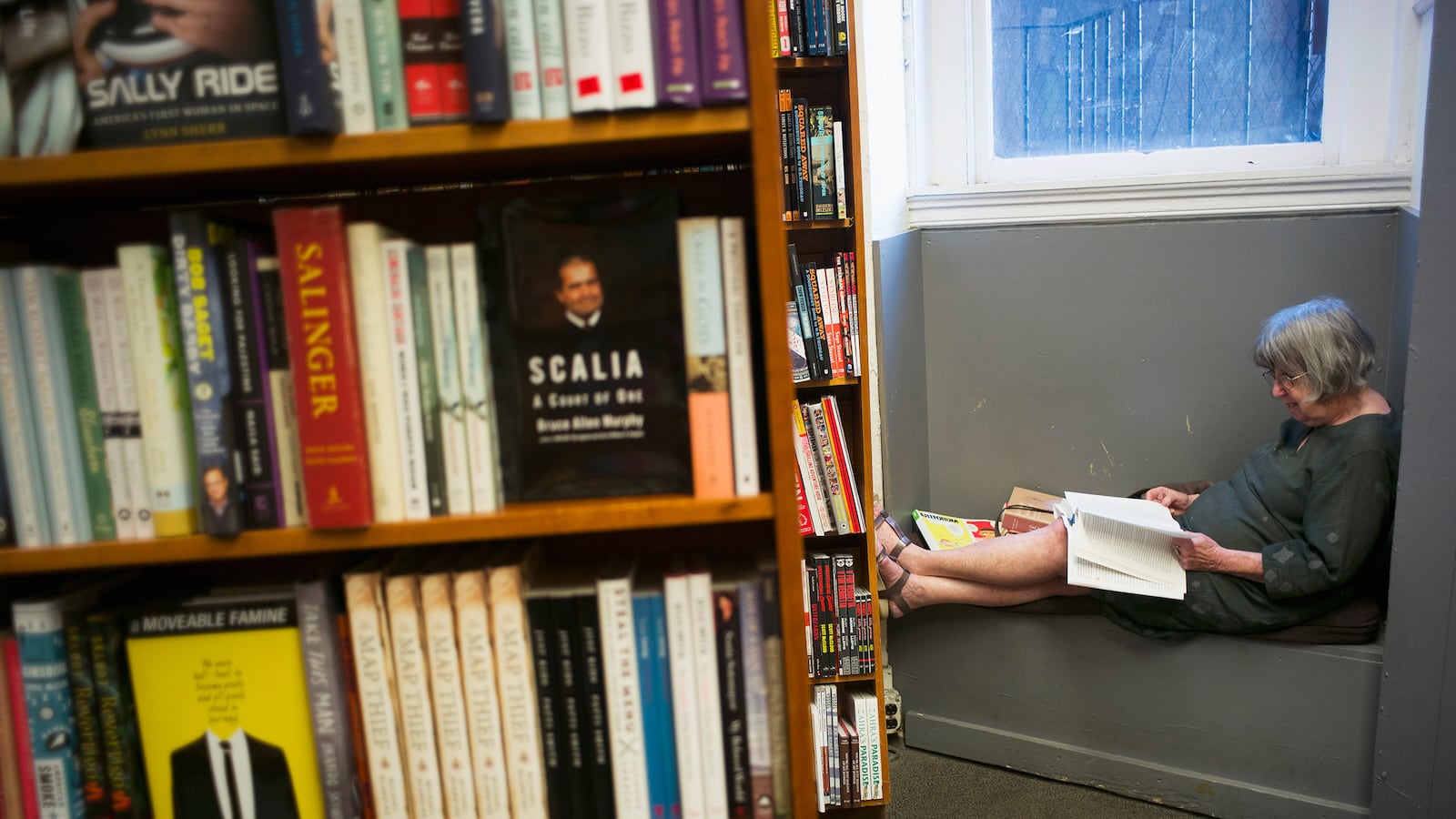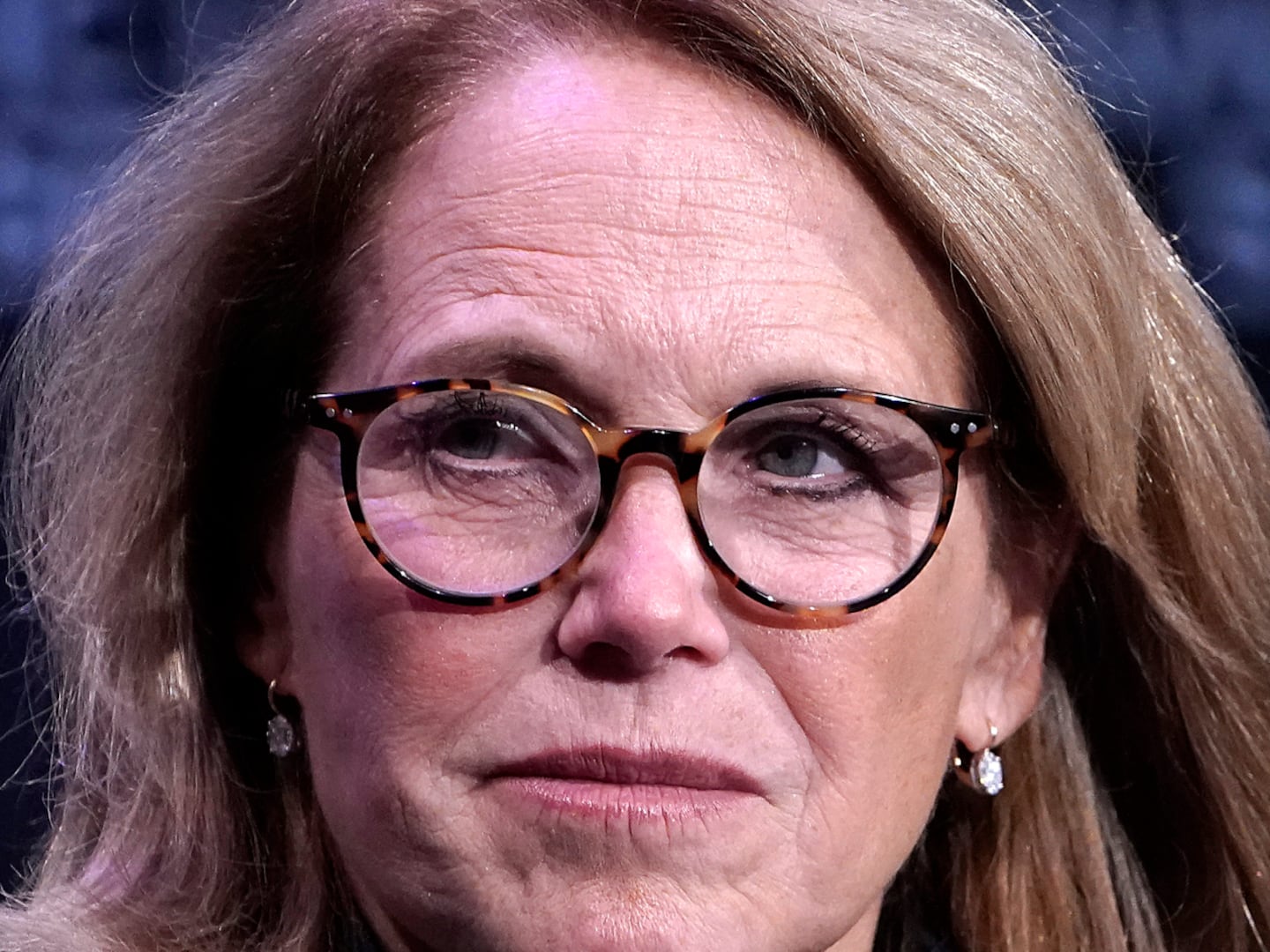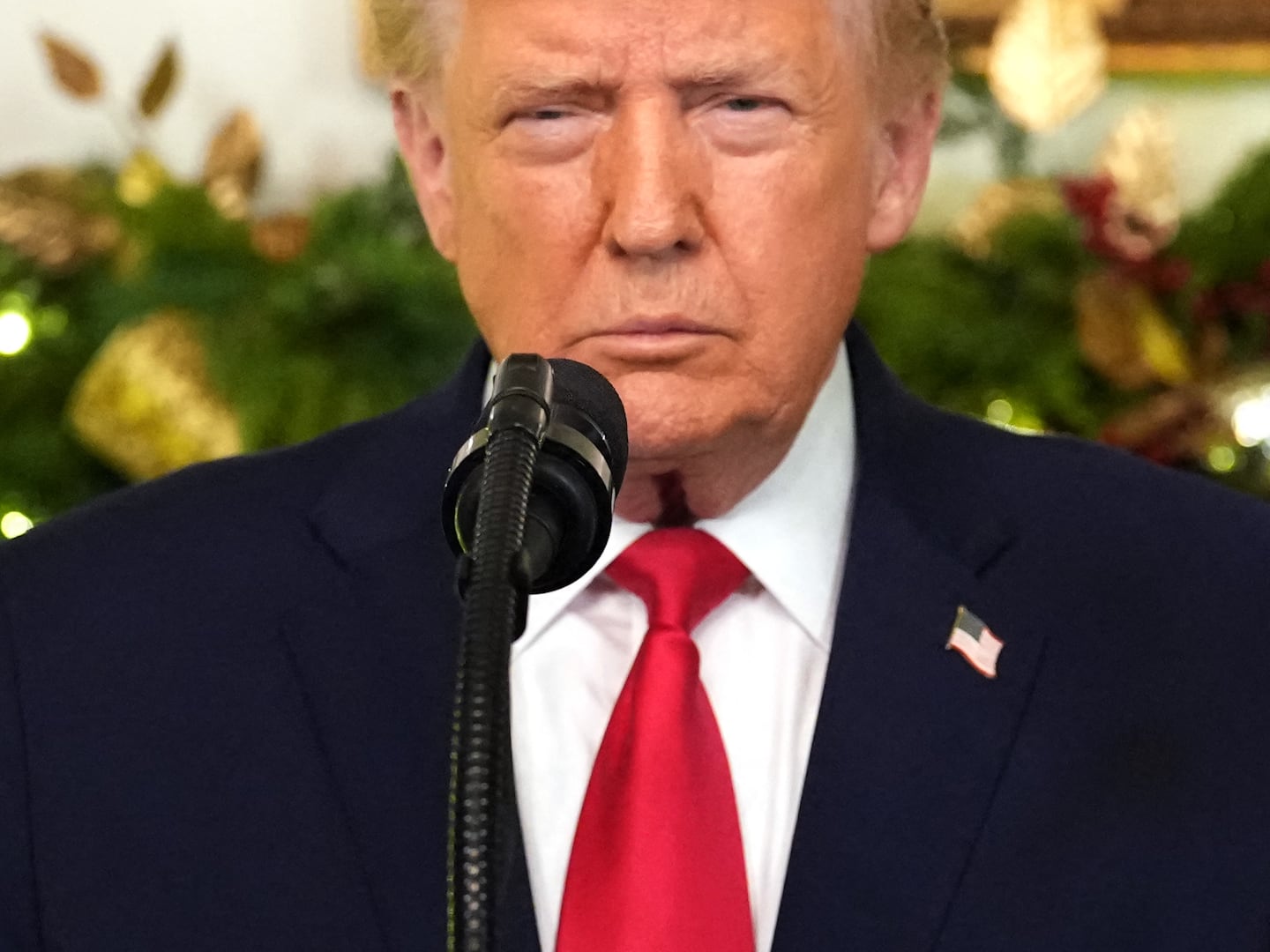A little girl wearing fairy wings twirled in a photo booth rigged up next to the New Releases table. Across town, a bookseller set cans of beer, donated from a local brewery, to chill in a tub of ice. Balloons tied to chalk boards proclaimed Saturday, May 2 Independent Bookstore Day: the first national celebration of this surprisingly buoyant industry. On Twitter and Instagram, shoppers showed off their literary hauls so enthusiastically that for a few hours the hashtag #Bookstoreday was trending nationwide, up there with the royal baby, the Kentucky Derby, and an event which shares the event’s community-spirited DNA, Free Comic Book Day. For the booksellers who embraced the day’s events, the day was a chance to declare that they aren’t going anywhere. But it was also a reminder that community support is more vital than ever to the survival of their businesses.
“We wanted to change the tired narrative of bookstores hanging on by a thread and being these musty throwback shops,” says Independent Bookstore Day program director Samantha Schoech, a former bookseller.
Her husband, Pete Mulvihill, the co-owner of San Francisco’s Green Apple Books, had been wondering for a while why there wasn’t a bookstore equivalent of the long-running Record Store Day. As ambitious, quixotic ideas sometimes do, this one snowballed, culminating in 2014 in the inaugural California Bookstore Day. With participating retailers reporting an average sales increase of between 20 and 60 percent, booksellers outside the state “clamored” for a chance to participate, Schoech says. With seed money from the American Booksellers Association and sponsorship from publishers, her team took the event national.
“It’s fun to throw a party and have all these enthusiastic customers come in to your store,” she says. “It further cements a bookstore’s role in a community.”
To get new customers coming in, spending money, and coming back, independent bookstores have to offer something that their customers can’t find online. That might be an intangible sense of community, or something more concrete, like the special products that the IBD organizers created this year—“physical, real, bona fide book swag,” as Rebecca Fitting of Brooklyn’s Greenlight Bookstore called it. The range of signed books and artwork, available only on this day and only in stores, included a chapbook of new essays by Bad Feminist author Roxane Gay; a limited-edition print by the graphic artist Chris Ware; and a stencil of a Margaret Atwood quote designed to resonate with the bookstore crowd: “A word after a word after a word is power.”
But the success of the day depended on the active participation of individual owners and managers. “Each bookstore really has to create their own party and get the word out about it,” says Schoech. “We handle all national publicity, but every bookstore is responsible for local publicity and reaching out to their customer base.”
Across New York there were clear differences in the approach to the day, reflecting the size, location, and personality of each store.
Jessica Stockton Bagnulo, Fitting’s co-owner at Greenlight, said she and her staff had brainstormed for weeks to come up with the best way to mark the day. They rejected ideas like a scavenger hunt, which seemed too involved and too distracting from the actual business of selling books, and hit on the idea of setting up an author photo booth.
“One of the great strengths of our store is that so many writers live close by,” Stockton Bagnulo explained. To capitalize on their location, the staff invited local authors to come in and take photographs with customers.
Ryan Chapman, whose book of trivia, Conversation Sparks, was published last month, popped a bottle of champagne to kick off the party, accompanied by his wife, Summer Smith, who also works in publishing, and their visiting parents. A basket of wigs and masks helped customers get in the mood. Some nearby browsers eyed the festivities warily—plenty of people, after all, treat bookstores as a sanctuary from social life, not a celebration of it. But the giddy atmosphere was part of the point—this wasn’t the kind of shopping experience you could find online. And it worked.
“We passed last year's sales around 5 p.m.,” Fitting reported to the organizers. “Overall we were up a whopping 41 percent compared to last year.”
The party spirit also paid off for Astoria Bookshop, the only independent bookstore in Queens. The store hosted several events, culminating in a bookish trivia game with local authors and comedians, and free literary-themed cocktails. The next day on Twitter, owner Lexi Beach reported an extraordinary sales jump: “550 percent up over the first Saturday in May last year.” She clarified that the comparison, which the ABA asked retailers to make, might be a little misleading—last year’s weather was wet and cold, and her store was very new. Nevertheless, “Saturday was definitely my best in-store day ever—solidly 20 percent up over the previous best, the Saturday before last Christmas,” she said.
That success was echoed in several other stores in the city. “Sunny Saturdays are usually busy, but this is a noticeable bump,” said Matt Pieknik, director of marketing at McNally Jackson, a large independent store in the middle of bustling Soho, which attracts plenty of tourists as well as locals. “It’s definitely a lot more energetic. We had people lining up first thing in the morning.” More than a few customers were making a day of it, he noticed: “I’ve seen people with bags from a few different bookstores, and they’re displaying their purchases on Instagram.”
Getting customers to reject the homogeneity of chain stores and the facelessness of Amazon has been essential to the success of unique independent stores. But the stores that profit best from an event like Bookstore Day seem to be those, like McNally Jackson, that have already embraced the new social reality of bookselling. They are the stores that maintain a chatty and approachable social media presence, offer a carefully curated selection of stock, run children’s story time in the mornings and readings and parties in the evenings, and focus on making their stores pleasurable places to visit. They are the stores that are the face of this unexpected retail resurgence.
“In reality more bookstores have opened than closed in the last couple of years in the U.S.,” says Schoech. “They have always been and will always be anchors in many communities.”
After the event, the organizers asked participating bookstores to report back on their sales and reactions to the day, and the statistics are further proof that the day provided a near-universal boost, with 80 percent of responding stores reporting a sales jump from the first Saturday last year, according to Shoech. And the jump was a significant one: Stores were up an average of 70 percent, with many well over 100 percent. Not surprisingly, given those numbers, 98 percent of stores said they would participate again.
The challenge for all these stores is how to sustain those benefits in the long term. In countries like France and Argentina, bookstores are protected as unique and valuable cultural spaces. In the United States, especially in overheated real estate markets like Manhattan’s, they will remain vulnerable.
A few blocks east of McNally Jackson, two bookstores stand as a reminder that even community anchors can be dislodged. In the middle of the afternoon on Saturday, the new East Village incarnation of the downtown mainstay St. Mark’s Bookshop was noticeably quiet, with little visible sign that there was anything special going on. Even in its airy new space, St Mark’s still feels like a bookstore of the old school, where customers browse in undisturbed silence, and there’s little attempt made to entice customers. Nearby, Bonnie Slotnick’s homey antiquarian cookbook store is also getting established in a new space, after being forced to relocate from its longtime West Village home. Her Bookstore Day party served up cookies and baked treats to celebrate “the triumphant survival of ‘mom and pop’ bookshops in all their variety,” Slotnick said. As she knows only too well, that survival depends on the year-round support of the book-buying public, and she implored customers on her website, “Let’s make EVERY day Indie Bookstore Day.”






